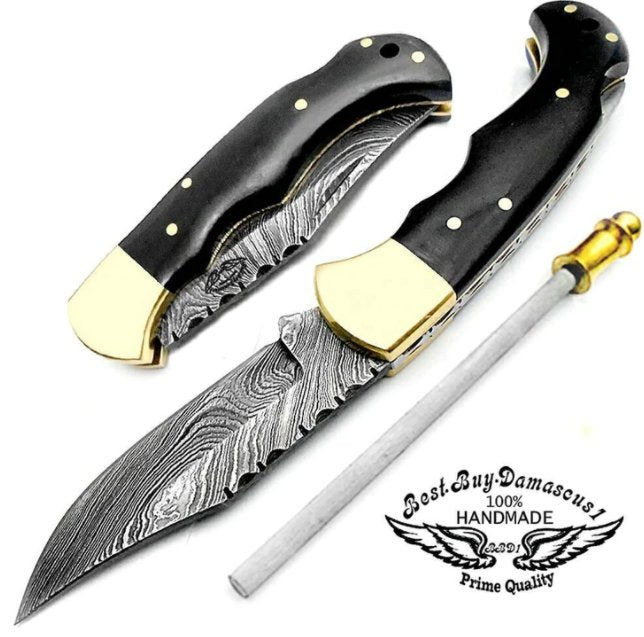
How to Care and Maintain a Damascus Steel Knife?
Posted by Best.Buy. Damascus1 on
Damascus steel blade knife is a popular type of knife with unique beauty. Also known by other names, such as watered steel or Damascened steel, this one-of-a-kind steel comes with alternating light and dark patterns with high carbon content.
Damascus steel is very popular because of its attractiveness and ability to retain its flexibility and hardness. It has the ability to outperform current irons and steels. Additional care and attention are required while using this high-quality steel knife, especially one with detailed etchings. Here are some helpful tips for maintaining the beauty and functionality of a Damascus steel knife.
Lubricate Damascus Steel Blades
The unique design of the steel is exposed only after it has been etched and acid washed throughout the manufacturing process. Different oxidation levels result in dark or oxidized and light/shiny patterns on the blade as a result of this etching.
The majority of hand-forged Damascus blades are composed of high carbon steel, which means they have a low chromium content. When not properly maintained, carbon steel Damascus knives can rust. To avoid rust or discoloration, keep the Damascus steel knife clean and dry at all times.
Abrasives should be Avoided
Avoiding abrasives such as rough cloths, steel wool, metal polishes, and others is vital for keeping the blade's appearance and quality. Using an abrasive or metal cleaner will erase the etched oxidation that a Damascus steel knife needs to display the pattern. We recommend returning your blade to the maker for re-etching service when the etch has been greatly altered.
Be Careful While Using Your Damascus Blade
When used on acidic foods, such as fruits, in moist, humid settings, or for field dressing games, a carbon steel Damascus blade is especially vulnerable to damage. The etching of the blade can be removed by such uses and situations.
When you do use Damascus, make sure to wash and dry it right away, and don't rub the blade too hard. Using softer material, like a microfiber or cotton cloth will not wear the blade if you dry with it.
Appropriate Storage is Essential to Maintain it Rust-Free
When not in use, the Damascus steel knife should be stored in a dry place away from excessive moisture and temperature fluctuations. Keeping the knife in a box or cushioned zipper case after cleaning and waxing it will maintain it perfectly.
Also, a damp handle or the moisture from the handle can rust the blade, so keep the entire knife dry. If you're keeping Damascus knives with natural handle materials, stay away from using a dehumidifier bar, particularly in a closed safe or storage compartment.
Your Damascus steel knife will last longer and retain its unique appearance if you take proper care of it.

